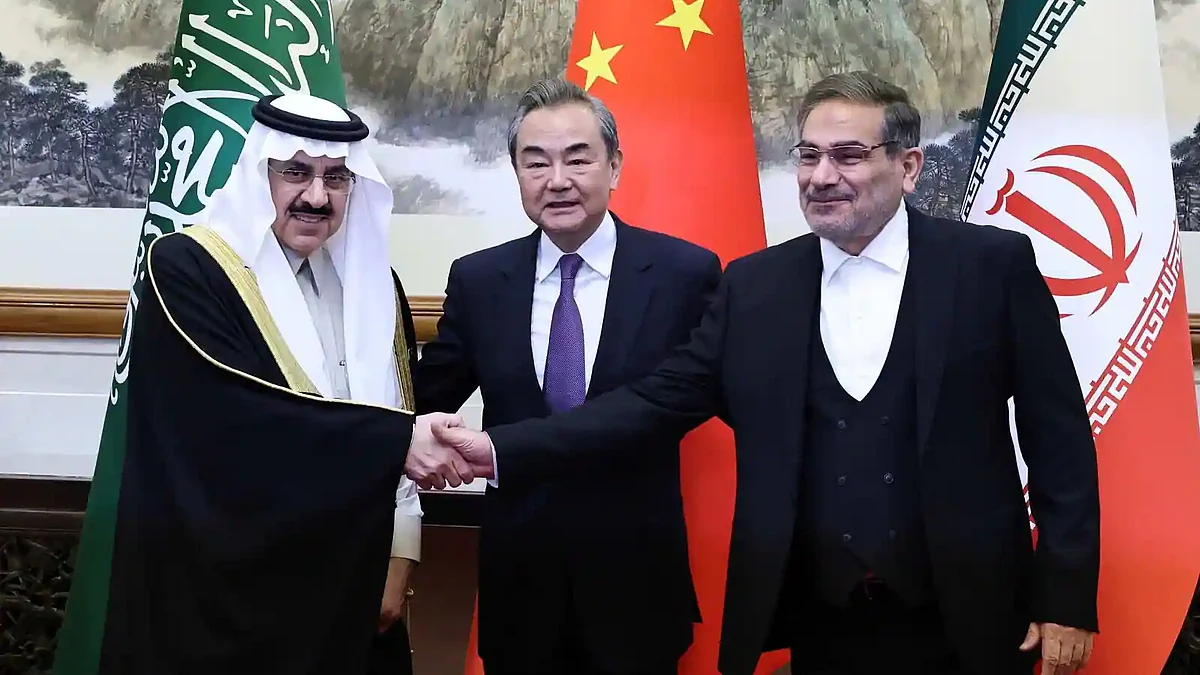Herald View: A Bloodless Coup in Beijing
Neither Prime Minister Modi nor his external affairs minister S. Jaishankar nor the MEA spokesperson has spoken on what is being described as a tectonic shift in the geopolitics of West Asia

While much of the world and even the United States, grudgingly or otherwise, welcomed the agreement signed in Beijing on March 10 between Iran and Saudi Arabia, not a word has emerged from New Delhi. Neither Prime Minister Modi nor his external affairs minister S. Jaishankar nor the MEA spokesperson has spoken on what is being described as a tectonic shift in the geopolitics of West Asia. The embarrassing fact that while India has been busy celebrating its presidency of the G20—a pretty irrelevant grouping since G7 has no use for it—its strategic rival in the region China pulled off a diplomatic coup is lost on nobody. The diplomatic coup has signalled the emergence of China as a power broker and a credible mediator in West Asia, more credible than either India or the United States. It also dramatically highlighted the declining influence of the United States in the region. It is ironic, of course, that communist China should have brokered a deal between an Islamic theocracy in Iran and an Islamic monarchy in Saudi Arabia, but even more than that it is a blow to the United States, which has been flexing its muscles in the region for the past 20 or more years. Besides consolidating its position in West Asia as a major buyer of energy and partner in trade, Beijing invested in understanding the culture and politics of West Asia. Every other Chinese university is said to have a department of West Asian studies and China boasts of a thousand-plus scholars who are fluent in Arabic. The agreement in Beijing between two intractable foes, Shia-dominated Iran and the predominantly Sunni Saudi Arabia, is a sign of Chinese foreign policy coming of age. While China launched its Belt and Road Initiative (BRI) in 2013, it had shied away till now from intervening politically. Its growing confidence can be seen in its formulation of a 12-point doctrine to end the war in Ukraine. Buoyed by the historic agreement last week, President Xi, it was reported, is planning to speak to President Putin and President Zelenskyy to mediate a settlement to the conflict in Ukraine.
India, notwithstanding five thousand years of trade and cultural relations with the Persian Gulf region and the large Indian diaspora in the Gulf, appears to have lost out. India was best positioned to broker a deal in the region, but lost much of its credibility by acting like a lackey to the United States. When President Trump imposed sanctions on Iran, China did not stop buying oil from Iran but India did. Notwithstanding the ‘cultural comfort’ that West Asia has with India, the relationship has become much more transactional than strategic and political. While the Modi government has helped big business do business with West Asia, it has bungled its strategic geo-political interests. The current wave of Islamophobia in India has certainly not helped build trust and respect in the region. It is also remarkable that while India was busy preening over its G20 presidency, President Xi Jinping paid a state visit to Riyadh in December and participated in three summits. In February, President Ebrahim Raisi of Iran flew to Beijing, where the two countries signed a ‘strategic cooperation pact’. It was during this period that the foreign ministers of both Saudi Arabia and Iran cancelled their scheduled visits to New Delhi. Like much else, India’s foreign policy under Modi has been high on rhetoric and hollow in substance. The most recent public relations coup in Beijing is yet another wake-up call for New Delhi. India is making a hash of dealing with a rising China while mortgaging its interests to American hardliners keen to play the two neighbours against each other.
Follow us on: Facebook, Twitter, Google News, Instagram
Join our official telegram channel (@nationalherald) and stay updated with the latest headlines
Published: 18 Mar 2023, 2:00 PM
